スウェーデン政治経済情報 @sweden_social さんのツイート。
――英ガーディアン紙が南海電車の車掌の「外国人客が多くてご迷惑をかけます」アナウンス事件と、「一番寿司」での大量ワサビ事件(「ワサビテロ」と記載)について報道。「原因はともあれ外国人客と日本人との間の摩擦は旅行先としての評判を落とす」と。〔19:41 - 2016年10月11日 〕——
一部の店舗、企業だけがやり玉に上がっている。
しかし、実は、
「おもてなしの国、日本」
というキャッチフレーズは百年早い、
ということだろう。
わさびの大量盛りサービスも
「わさびテロ(wasabi terrorism)」
と報じている。
<追記>
市場ずし、今は、
韓国人客には見事にわさび抜き!
(spark
@Yonge_Finch さんのツイート〔21:25 - 2016年10月11日 〕参照)。
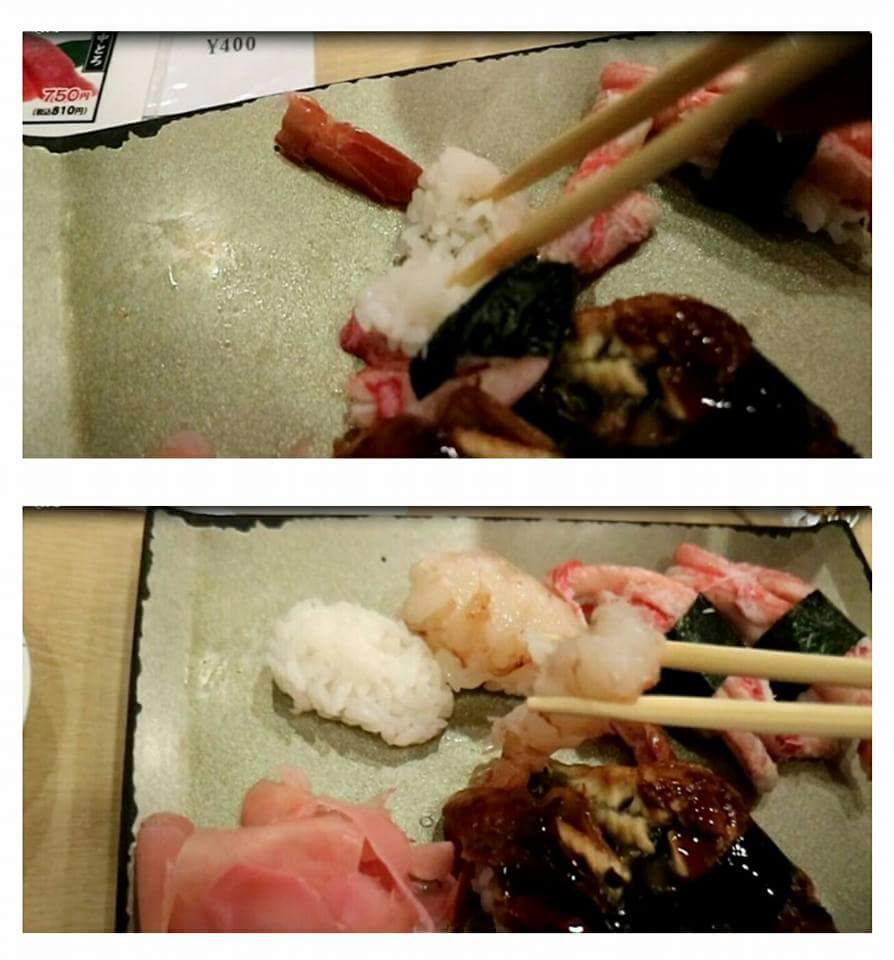
ỸU$ÛKĘ ỬÉDÅ@yoox5135 さんが
こんな報告。、
――理由を聞くと「韓国人があれこれ言うから」と自分らの誤ちの反省はおろか、むしろ逆ギレしている〔20:32 - 2016年10月11日 〕——
とのこと。
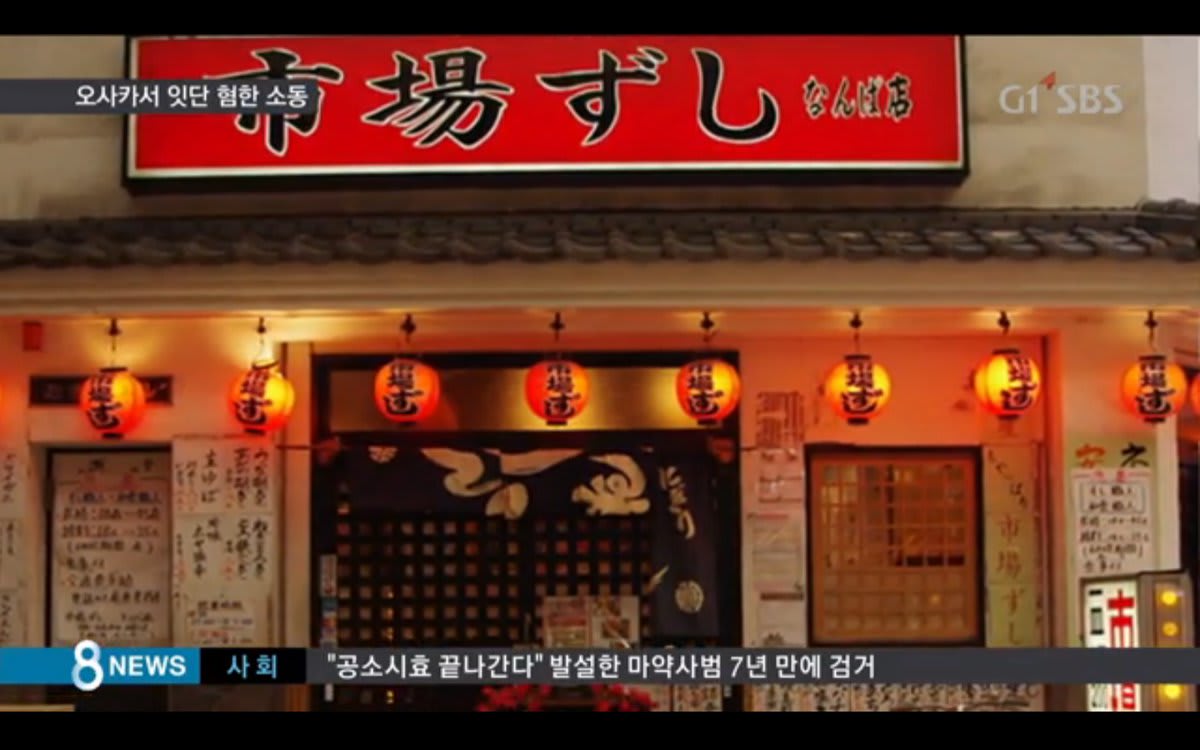
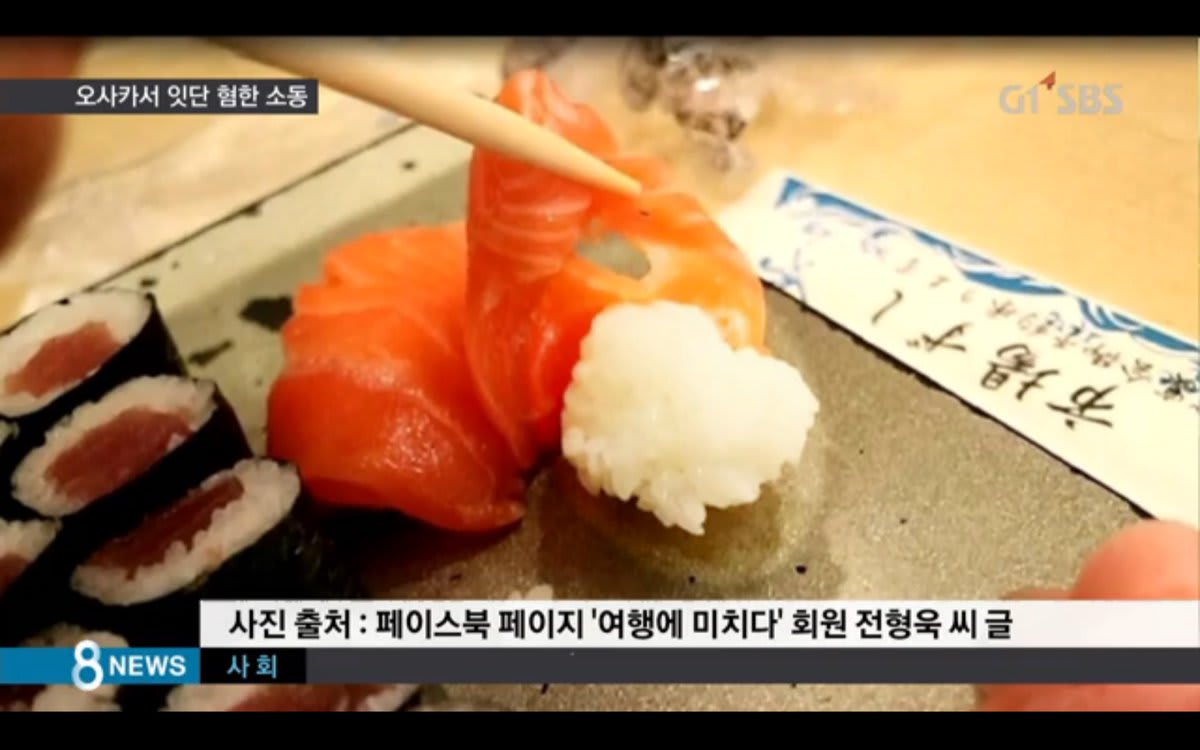
プロの矜持に欠けるのだな。
いい加減にしろと思うな。
また、
道頓堀で
13歳韓国人少年が「通り魔」被害にあったというニュースがある
(「ヤフーニュース/米重克洋さん・文」〔2016年10月11日 23時2分配信 〕参照。*http://bylines.news.yahoo.co.jp/yoneshigekatsuhiro/20161011-00063135/)。
これがもし、
「わさびテロ」と非難された仕返しなら、
見苦し過ぎるぞ。
<追記-2>
「本日は多数の外国人のお客さまが乗車されており、大変混雑しておりますので、日本人のお客さまにはご不便をおかけしております」
という内容のアナウンスを南海電鉄の車掌がした背景には、
毎日新聞によると、
「難波駅で車内の日本人”男性”客が『外国人が多くて邪魔』という内容を大声で叫んだ」
という事情がある。
トラブルを避けるために
車掌が機転を利かせて上掲アナウンスをした、
ということらしい
(拙稿「これ、「多くの外国人で、ご不便を」という車掌のアナウンスに、差別の意図がないとするTV局の図解だ。なんか臭い!」参照。*http://blog.goo.ne.jp/nrn54484/e/76e18f4952dc63915cd2c3af1e7335a0)。
しかし、ある人が、
後方車両に外国人観光客が集まりやすい。
前方の車両なら空いてるよ
という報告をしていた。
たくさんいる
外国人が脅威に思えるほど気になるなら、
さっさと前の
車両に移動すればよかったわけだ。
それをせず、
まるで
駄々っ子みたいに
『外国人が多くて邪魔』
と喚く
おっさんにむしろ不快感を感じて
他の乗客が
車掌に通報したのだろう。
要するに、
この事例では、
車掌の機転の利かせ方に、むしろ、問題があったようだ。
松井計@matsuikei さんが
作家らしく
――彼に近寄り、「おどれ、静かにせんかい。おどれだけが乗っとるんとちゃうど。調子こいとったらいてまうど」と耳元で囁けばすむんじゃないの?〔21:53 - 2016年10月11日 〕——
と提案しておられた。
言葉遣いはともかく、一考に値する見解だと思う。
島田虎之介 @Shimatorax さんが
こんなツイート。
-—経済のトリクルダウンは起きないけど不道徳のトリクルダウンは起きるのだな〔1:55 - 2016年10月12日 〕——。
政治レベルの
不道徳な発言、行動に関わりなく、
庶民レベルでは
おもてなしの心を見失わないようにしたい。
<追記-3>
Sakurai Nobuhide @sakurainobuhide さんの
ツイートです。
――韓国のテレビプロデューサーが市場ずしの取材をネット生中継。(中央店と見られる店で)職員が今回の事態を謝罪、今後は日本人に出す時と同じく韓国人にもわさびを適量入れると返答した。〔20:00 - 2016年10月12日 〕——

これ、まずいんじゃないかな。
喧嘩は必要だ。
小競り合いを許さず、
抑圧すると、
鬱屈した不満が溜め込まれ、
暴発する可能性がある。
特に
ネトウヨなどやっているような
自尊感情の乏しい、
すなわち、恥の感覚のない人に
自制を
求めるのに無理があるんではないか。
どうして、
韓国のテレビプロデューサーも
その辺りのこと考えてくれなかったのか。
不吉なものを感じる。
在日の人が迷惑を被らなければいいが――。
<追記-4>
不吉な予感、的中かな。
通り魔的に
若い娘さんに纏いつく心得違いな
ヘイトクライムが発生した
(拙稿「日本人男性4人による通り魔的ヘイト @ 道頓堀(大阪)」参照)。
☆ 記事URL:http://blog.goo.ne.jp/nrn54484/e/b398d72d085d3d7bc8673ca7ae3558fa
他方、⭐倒木更新 ⭐@haigujin さんが
こんな報告。
――@tabisaki @reservologic 韓国TVが取材にきて、取材許可も取らず、カウンターに陣取ってしつこく他店の店員に謝罪要求を繰り返し、韓国人の反日感情に油を注ぐ。常識がない、取材許可を本社にとり本社の見解を糺すのが筋だろう。店員は全体で同じだという発想は危険だ。〔8:48 - 2016年10月19日 〕―—
緊張が緊張を招いているようだ。
このツイートにつき、
kaz hagiwara(萩原 一彦)@reservologic さんが
――ネットを含むメディアのスケベ根性が対立を大きく煽る構図になってると思う。日本と韓国のメディアは手法は異なるけど、相手側の極端な「真実」を見せてこちら側を煽る瓦版的精神構造を共有してる。特に韓国取材陣が謝罪を迫る場面の危険性は韓国メディアは自覚すべきだと思った。〔9:30 - 2016年10月19日 〕—―
とコメントしておられた。
〔資料〕
「Japanese train conductor blames foreign tourists for overcrowding 」
英ガーディアン紙(Tuesday 11 October 2016 10.39 BST )
☆ 記事URL:https://www.theguardian.com/world/2016/oct/11/japanese-train-conductor-blames-foreign-tourists-for-overcrowding
Rail company reprimands conductor who made announcement blaming foreigners for inconveniencing Japanese passengers
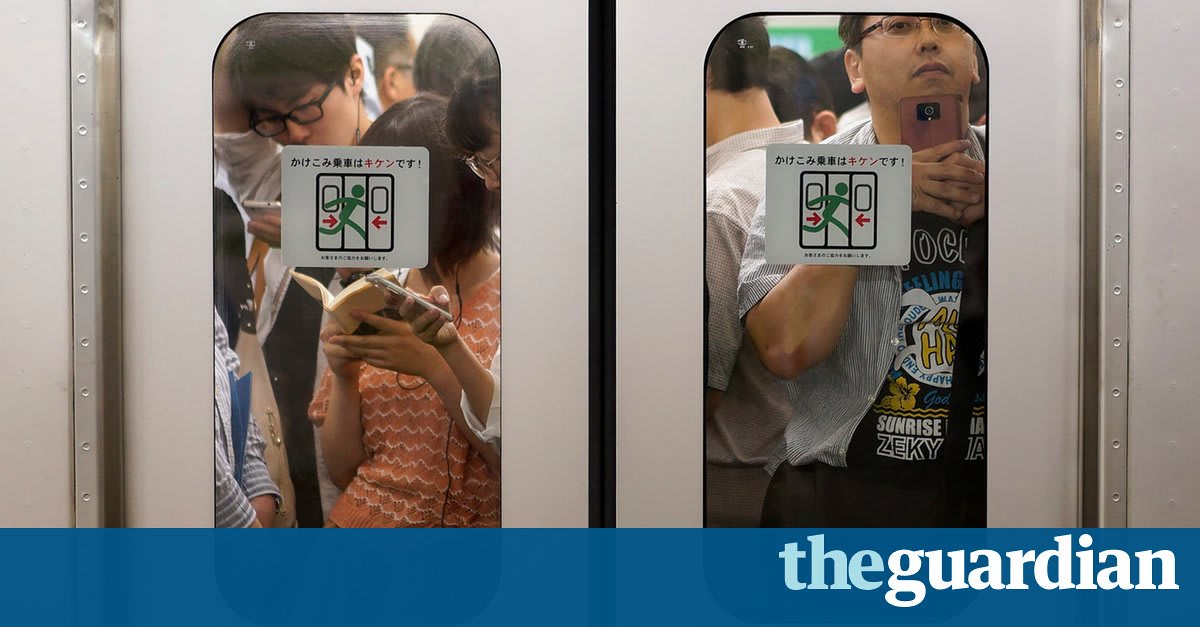
Commuters on a train.The conductor said foreign passengers had caused ‘serious congestion’ on the train. Photograph: Franck Robichon/EPA
A railway company in Japan has reprimanded a conductor who blamed the large number of foreign tourists on a crowded train for inconveniencing Japanese passengers.
The outburst will have done little to help Japan’s attempts to become a more welcoming destination for foreign visitors as it prepares to host the 2019 rugby World Cup and the Tokyo Olympics a year later.
Japan’s successful pitch for the 2020 Games made much of the country’s reputation for omotenashi– traditional hospitality and service.
But there was precious little omotenashi on display when the conductor addressed passengers on a Nankai Electric Railway express train bound for Kansai international airport near Osaka on Monday morning.
“There are many foreign passengers on board today … this has caused serious congestion and is causing inconvenience to Japanese passengers,” said the conductor, a man in his 40s.
A Japanese passenger reported the incident to a station attendant at the airport, questioning whether the conductor’s wording was acceptable.
The conductor, who has not been named, later defended his choice of words: “I heard a male Japanese passenger at [another station] yelling: ‘All these foreigners are a nuisance,’” the Mainichi Shimbun quoted him as saying.
“I made the announcement to avert trouble and had no intention of discriminating [against foreign passengers],” he said.
A Nankai Electric spokesman told the newspaper that the firm had previously received complaints about foreign visitors with large suitcases, but added: “Whether people are Japanese or non-Japanese, the fact remains that they are our passengers. Language that sets them apart [from other passengers] is inappropriate.”
The incident follows an accusation by South Korean tourists that a sushi restaurant in Osaka deliberately smeared their orders with eye-watering quantities of wasabi, a pungent condiment that should be used sparingly.
Advertisement
The restaurant chain Ichibazushi apologised but denied accusations of racism, saying its chefs had decided to use excessive amounts of wasabi after other foreign diners had previously requested larger dollops for added piquancy.
“Because many of our overseas customers frequently order extra amounts of pickled ginger and wasabi, we gave them more without checking first,” the chain’s management said. “The result was unpleasant for some guests who aren’t fans of wasabi.”
It was not clear how many such incidents – labelled “wasabi terrorism” on social media – had occurred, but some disgruntled diners posted photos of sushi containing twice as much wasabi as usual.
Whether or not the incidents resulted from misunderstandings, the potential for friction between visitors and local people is likely to increase as Japan gains popularity as a tourist destination.
A record 2.05 million people visited the country in August, according to the Japan Tourism Agency, including 677,000 from China, 458,900 from South Korea and 333,200 from Taiwan.
Japan’s government hopes to double the number of foreign visitors to 40 million in 2020, and expects a tourism windfall of 8tn yen (£63bn).
――英ガーディアン紙が南海電車の車掌の「外国人客が多くてご迷惑をかけます」アナウンス事件と、「一番寿司」での大量ワサビ事件(「ワサビテロ」と記載)について報道。「原因はともあれ外国人客と日本人との間の摩擦は旅行先としての評判を落とす」と。〔19:41 - 2016年10月11日 〕——
一部の店舗、企業だけがやり玉に上がっている。
しかし、実は、
「おもてなしの国、日本」
というキャッチフレーズは百年早い、
ということだろう。
わさびの大量盛りサービスも
「わさびテロ(wasabi terrorism)」
と報じている。
<追記>
市場ずし、今は、
韓国人客には見事にわさび抜き!
(spark
@Yonge_Finch さんのツイート〔21:25 - 2016年10月11日 〕参照)。

ỸU$ÛKĘ ỬÉDÅ@yoox5135 さんが
こんな報告。、
――理由を聞くと「韓国人があれこれ言うから」と自分らの誤ちの反省はおろか、むしろ逆ギレしている〔20:32 - 2016年10月11日 〕——
とのこと。


プロの矜持に欠けるのだな。
いい加減にしろと思うな。
また、
道頓堀で
13歳韓国人少年が「通り魔」被害にあったというニュースがある
(「ヤフーニュース/米重克洋さん・文」〔2016年10月11日 23時2分配信 〕参照。*http://bylines.news.yahoo.co.jp/yoneshigekatsuhiro/20161011-00063135/)。
これがもし、
「わさびテロ」と非難された仕返しなら、
見苦し過ぎるぞ。
2016年10月12日未明 記
<追記-2>
「本日は多数の外国人のお客さまが乗車されており、大変混雑しておりますので、日本人のお客さまにはご不便をおかけしております」
という内容のアナウンスを南海電鉄の車掌がした背景には、
毎日新聞によると、
「難波駅で車内の日本人”男性”客が『外国人が多くて邪魔』という内容を大声で叫んだ」
という事情がある。
トラブルを避けるために
車掌が機転を利かせて上掲アナウンスをした、
ということらしい
(拙稿「これ、「多くの外国人で、ご不便を」という車掌のアナウンスに、差別の意図がないとするTV局の図解だ。なんか臭い!」参照。*http://blog.goo.ne.jp/nrn54484/e/76e18f4952dc63915cd2c3af1e7335a0)。
しかし、ある人が、
後方車両に外国人観光客が集まりやすい。
前方の車両なら空いてるよ
という報告をしていた。
たくさんいる
外国人が脅威に思えるほど気になるなら、
さっさと前の
車両に移動すればよかったわけだ。
それをせず、
まるで
駄々っ子みたいに
『外国人が多くて邪魔』
と喚く
おっさんにむしろ不快感を感じて
他の乗客が
車掌に通報したのだろう。
要するに、
この事例では、
車掌の機転の利かせ方に、むしろ、問題があったようだ。
松井計@matsuikei さんが
作家らしく
――彼に近寄り、「おどれ、静かにせんかい。おどれだけが乗っとるんとちゃうど。調子こいとったらいてまうど」と耳元で囁けばすむんじゃないの?〔21:53 - 2016年10月11日 〕——
と提案しておられた。
言葉遣いはともかく、一考に値する見解だと思う。
島田虎之介 @Shimatorax さんが
こんなツイート。
-—経済のトリクルダウンは起きないけど不道徳のトリクルダウンは起きるのだな〔1:55 - 2016年10月12日 〕——。
政治レベルの
不道徳な発言、行動に関わりなく、
庶民レベルでは
おもてなしの心を見失わないようにしたい。
2016年10月12日朝 記
<追記-3>
Sakurai Nobuhide @sakurainobuhide さんの
ツイートです。
――韓国のテレビプロデューサーが市場ずしの取材をネット生中継。(中央店と見られる店で)職員が今回の事態を謝罪、今後は日本人に出す時と同じく韓国人にもわさびを適量入れると返答した。〔20:00 - 2016年10月12日 〕——

これ、まずいんじゃないかな。
喧嘩は必要だ。
小競り合いを許さず、
抑圧すると、
鬱屈した不満が溜め込まれ、
暴発する可能性がある。
特に
ネトウヨなどやっているような
自尊感情の乏しい、
すなわち、恥の感覚のない人に
自制を
求めるのに無理があるんではないか。
どうして、
韓国のテレビプロデューサーも
その辺りのこと考えてくれなかったのか。
不吉なものを感じる。
在日の人が迷惑を被らなければいいが――。
2016年10月13日昼 記
<追記-4>
不吉な予感、的中かな。
通り魔的に
若い娘さんに纏いつく心得違いな
ヘイトクライムが発生した
(拙稿「日本人男性4人による通り魔的ヘイト @ 道頓堀(大阪)」参照)。
☆ 記事URL:http://blog.goo.ne.jp/nrn54484/e/b398d72d085d3d7bc8673ca7ae3558fa
他方、⭐倒木更新 ⭐@haigujin さんが
こんな報告。
――@tabisaki @reservologic 韓国TVが取材にきて、取材許可も取らず、カウンターに陣取ってしつこく他店の店員に謝罪要求を繰り返し、韓国人の反日感情に油を注ぐ。常識がない、取材許可を本社にとり本社の見解を糺すのが筋だろう。店員は全体で同じだという発想は危険だ。〔8:48 - 2016年10月19日 〕―—
緊張が緊張を招いているようだ。
このツイートにつき、
kaz hagiwara(萩原 一彦)@reservologic さんが
――ネットを含むメディアのスケベ根性が対立を大きく煽る構図になってると思う。日本と韓国のメディアは手法は異なるけど、相手側の極端な「真実」を見せてこちら側を煽る瓦版的精神構造を共有してる。特に韓国取材陣が謝罪を迫る場面の危険性は韓国メディアは自覚すべきだと思った。〔9:30 - 2016年10月19日 〕—―
とコメントしておられた。
2016年10月19日昼 記
〔資料〕
「Japanese train conductor blames foreign tourists for overcrowding 」
英ガーディアン紙(Tuesday 11 October 2016 10.39 BST )
☆ 記事URL:https://www.theguardian.com/world/2016/oct/11/japanese-train-conductor-blames-foreign-tourists-for-overcrowding
Rail company reprimands conductor who made announcement blaming foreigners for inconveniencing Japanese passengers

Commuters on a train.The conductor said foreign passengers had caused ‘serious congestion’ on the train. Photograph: Franck Robichon/EPA
A railway company in Japan has reprimanded a conductor who blamed the large number of foreign tourists on a crowded train for inconveniencing Japanese passengers.
The outburst will have done little to help Japan’s attempts to become a more welcoming destination for foreign visitors as it prepares to host the 2019 rugby World Cup and the Tokyo Olympics a year later.
Japan’s successful pitch for the 2020 Games made much of the country’s reputation for omotenashi– traditional hospitality and service.
But there was precious little omotenashi on display when the conductor addressed passengers on a Nankai Electric Railway express train bound for Kansai international airport near Osaka on Monday morning.
“There are many foreign passengers on board today … this has caused serious congestion and is causing inconvenience to Japanese passengers,” said the conductor, a man in his 40s.
A Japanese passenger reported the incident to a station attendant at the airport, questioning whether the conductor’s wording was acceptable.
The conductor, who has not been named, later defended his choice of words: “I heard a male Japanese passenger at [another station] yelling: ‘All these foreigners are a nuisance,’” the Mainichi Shimbun quoted him as saying.
“I made the announcement to avert trouble and had no intention of discriminating [against foreign passengers],” he said.
A Nankai Electric spokesman told the newspaper that the firm had previously received complaints about foreign visitors with large suitcases, but added: “Whether people are Japanese or non-Japanese, the fact remains that they are our passengers. Language that sets them apart [from other passengers] is inappropriate.”
The incident follows an accusation by South Korean tourists that a sushi restaurant in Osaka deliberately smeared their orders with eye-watering quantities of wasabi, a pungent condiment that should be used sparingly.
Advertisement
The restaurant chain Ichibazushi apologised but denied accusations of racism, saying its chefs had decided to use excessive amounts of wasabi after other foreign diners had previously requested larger dollops for added piquancy.
“Because many of our overseas customers frequently order extra amounts of pickled ginger and wasabi, we gave them more without checking first,” the chain’s management said. “The result was unpleasant for some guests who aren’t fans of wasabi.”
It was not clear how many such incidents – labelled “wasabi terrorism” on social media – had occurred, but some disgruntled diners posted photos of sushi containing twice as much wasabi as usual.
Whether or not the incidents resulted from misunderstandings, the potential for friction between visitors and local people is likely to increase as Japan gains popularity as a tourist destination.
A record 2.05 million people visited the country in August, according to the Japan Tourism Agency, including 677,000 from China, 458,900 from South Korea and 333,200 from Taiwan.
Japan’s government hopes to double the number of foreign visitors to 40 million in 2020, and expects a tourism windfall of 8tn yen (£63bn).










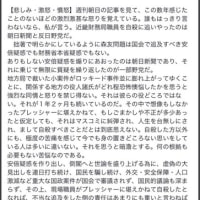
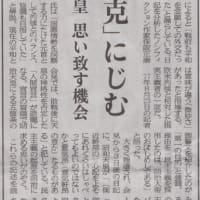
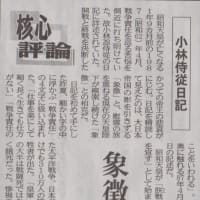
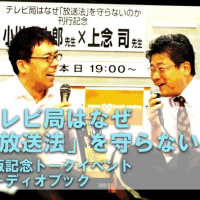

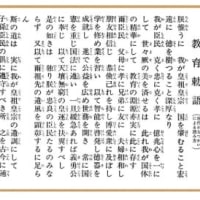



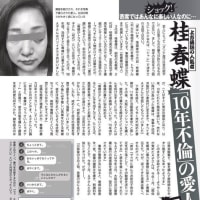
※コメント投稿者のブログIDはブログ作成者のみに通知されます